Diversity in Creation
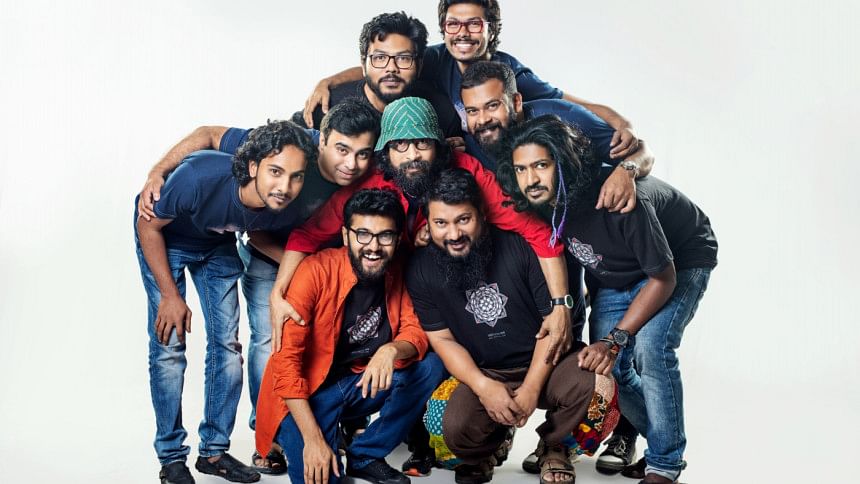
Celebrating the release of their new album, 'Noyon Joler Gaan', the popular folk-fusion band, 'Joler Gaan', sat down with Rafi Hossain for an exclusive interview. Their third official album contains twelve songs, one of which has been voiced by the late eminent folk singer and flautist, Bari Siddiqui. In conversation with Rafi Hossain, the band delves deep into the making of their new album.
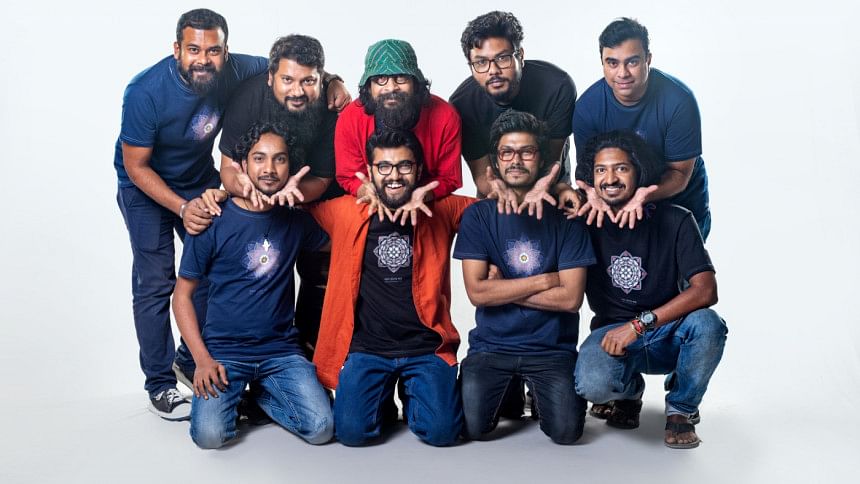
Rafi Hossain: Welcome to Uncensored with Rafi Hossain. Today, we are joined by the popular folk band, 'Joler Gaan'. They have released a new album, 'Noyon Joler Gaan', and we will be talking about that. Rahul, will you be singing some new songs for us today?
Rahul Ananda: I have already performed the songs which are on the new album. Before we pick songs for an album, we perform it onstage to see how the audience reacts. If they like it, we put it on the album, and if they don't, we discard the song. We try to tailor our album to fit the audience's preferences.
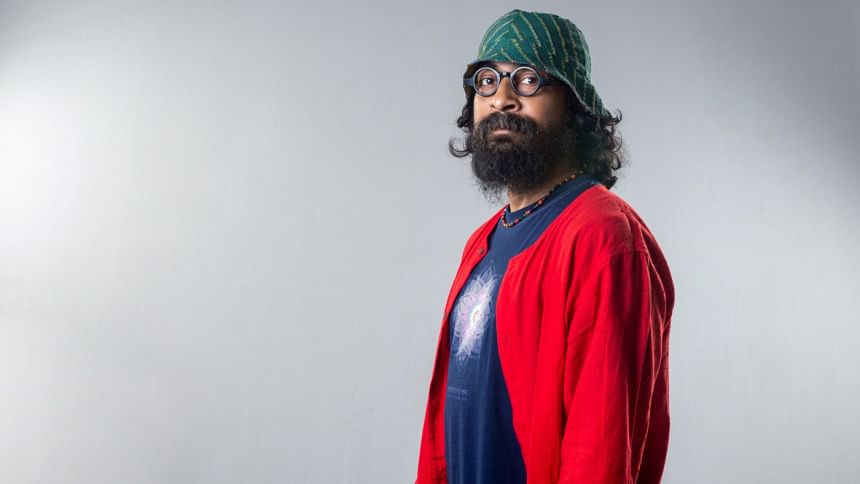
Rafi: How many songs are on this new album?
Rahul: We have twelve songs on this album. This is our first album since Patalpurer Gaan, which was released back in 2014. We have officially released three albums now.
Rafi: Tell us about the idea behind releasing a 'Gaaner Khata (songbook)'.
Rahul: It is made to look like a CD, but it is made of paper. It's mainly just an item that many collectors might love. The reason we decided to make a Gaaner Khata (songbook) look like a CD is because people still have a small reliance on them. I have heard many people tell me that we should release our album in cassettes, and we initially planned to make the Gaaner Khata look like one, but we then opted to make it look like a CD. We have put in the lyrics for every song we have released in here, and also have given the names of the people who worked on the songs. However, the music for the new album will be released solely online. We have released the songs on YouTube, and anyone can listen to them. Even though we have been telling people that this is just a songbook, many people still might get upset to see that there isn't an actual CD. So, we have been trying our best to make sure that people understand that this album does not have a CD. Our main reason for releasing it on YouTube is so that everyone can listen to it. We want people to listen to more Bangla music and to keep in touch with Bangla. People can learn many different languages, but they need to stay in touch with their mother tongue.
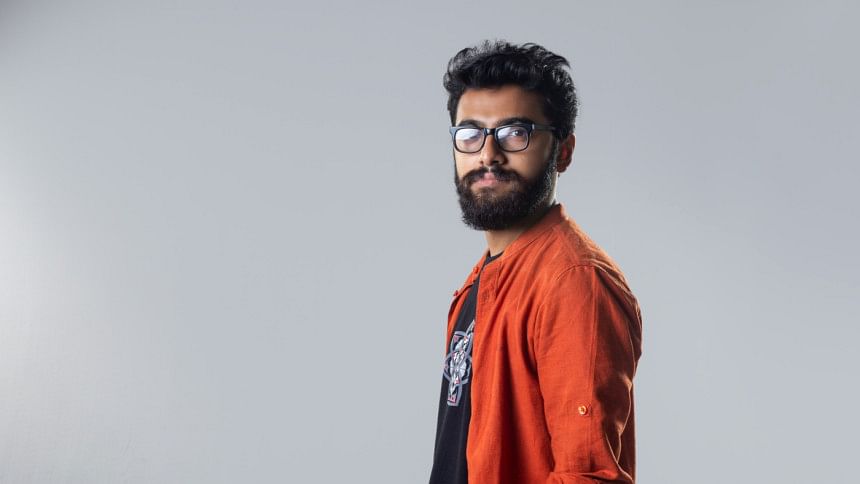
Rafi: Many people seem to think that the music industry in Bangladesh is going through a crisis. What is your take on this?
Rahul: I don't think that we are going through a crisis. We dedicated this album to my teacher, Bari Siddiqui. I consider him to be my guru, and since we all work very closely together, we all consider him as our guru. We even mentioned that the album was dedicated to him on its sleeve. Music cannot be developed without a proper teacher; you need a connection between a teacher and a student to become a proper musician. Otherwise, a lot more musicians would be able to learn just by watching videos on YouTube. Teachings like this pass down from a teacher to a student; this is the proven method for most musicians. As long as people can still understand this and will continue to give importance to their teachers, the music industry will not be in a crisis.
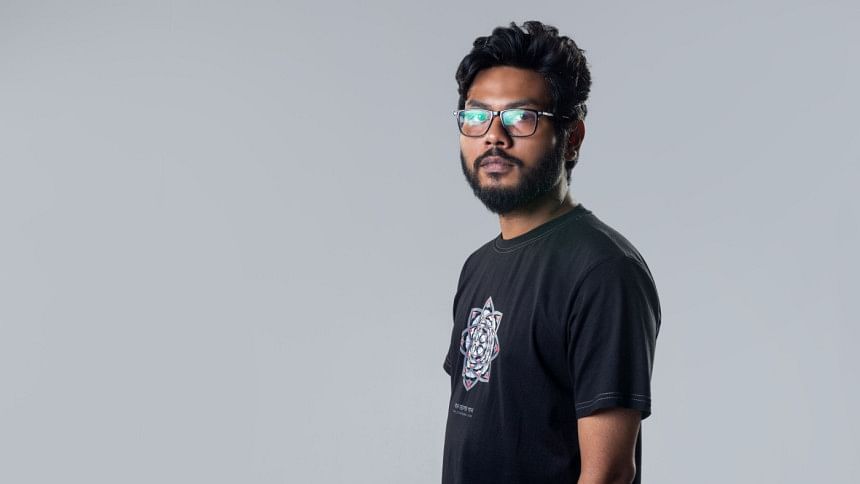
Rafi: I have to ask you about Kanak. Why does it happen that a few years down the line after a group forms, some members may decide to leave?
Rahul: Kanak had a family problem today, otherwise he would've been here. But, he is still involved with the band. He may not be performing onstage, but he has been doing a lot of work for Joler Gaan. He has been handling all the work with online distribution. There are many reasons for him not wanting to perform onstage, and since he doesn't want to perform, I won't be forcing him.
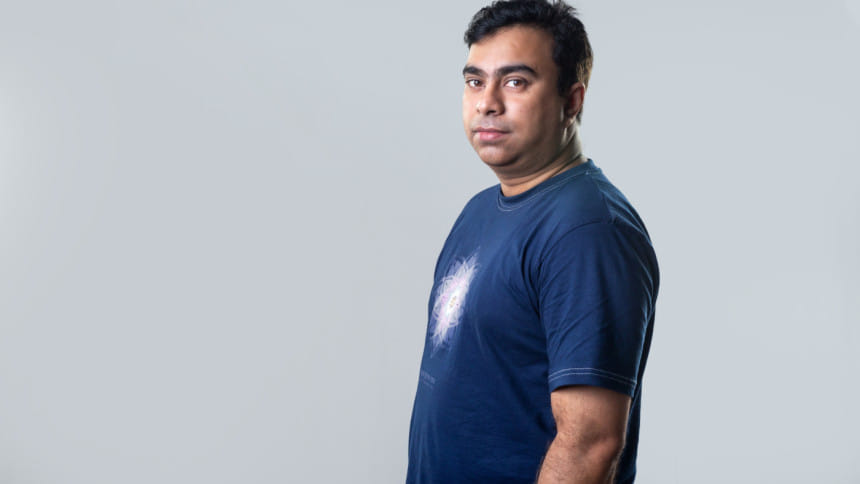
Rafi: Outside of 'Joler Gaan', do any of you do solo projects?
Rahul: We have no restrictions that prevent us from doing projects outside of the band. We are a very diverse group; we have people from several religions in this band, and we all have great chemistry. Another thing about us is that we can take inspiration from everywhere. We get inspired by a lot of different kinds of music, and that helps us make everything we create much more diverse. We even take inspiration from Latin and Afro music. Whichever music inspires us, we take an element of that and put it in our songs. Music to me has reached such a level that it is like a prayer.

Rafi: Another thing about 'Joler Gaan' that people always mention is that your performances are very entertaining. Since you have done theatre, does that help make the performances more entertaining?
Rahul: For Joler Gaan, someone has to lead during live performances, and due to my involvement in theatre, I give the lead. I have been doing theatre since 1991, and if I don't make our live performances entertaining like theatre, I'm not doing it properly. These entertaining live performances are something that is a huge part of Joler Gaan. Nowadays, you even see a lot of newcomers making music groups which are inspired by our live performances. I see many youngsters who get inspired and start writing and creating their own songs. I even keep in touch with many of them. There is this thing we do onstage where we use our experience in theatre and talk amongst ourselves and also the audience. We do it off the top of our heads, but I see that, sometimes, many bands try to do the same, but it's very apparent that they are reciting memorised scripts. I really don't like seeing bands do that.

Rafi: Do you have any parting message for the readers?
Rahul: Keep showering your love on us because we also love all of you. We write and compose songs from the love and adoration we receive from all our fans and loved ones.
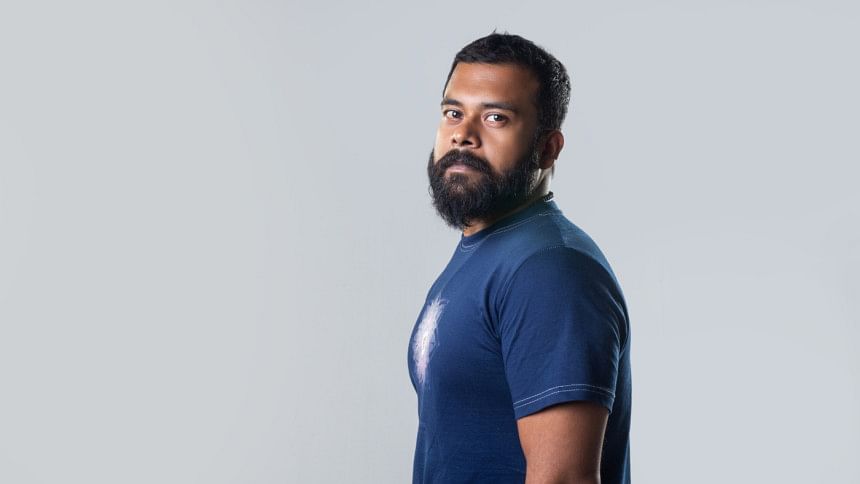
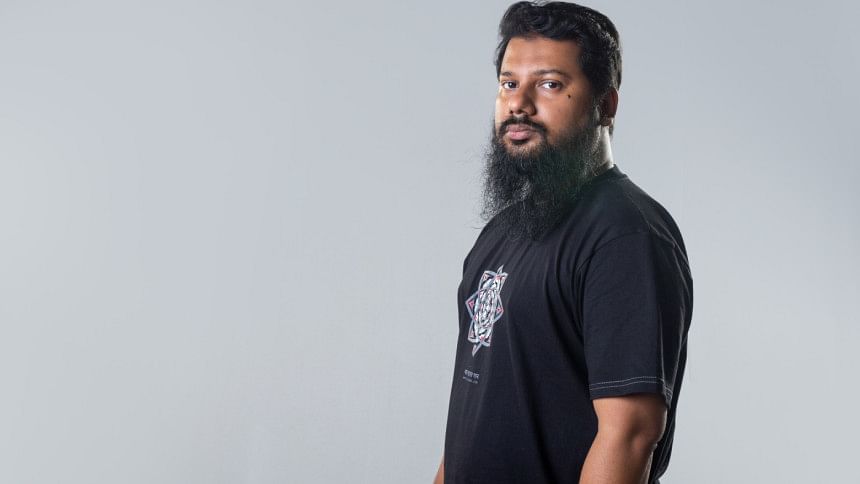

 For all latest news, follow The Daily Star's Google News channel.
For all latest news, follow The Daily Star's Google News channel. 



Comments